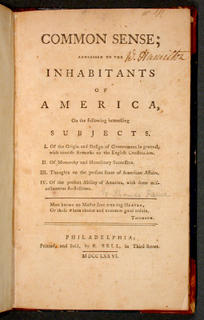My father and I agree on a lot more things now than we did twenty years ago, but sometimes we still disagree. Since he and my Mom currently live only a half-mile or so away from me I get to talk with him at least once a week. Our main topics of discussion always seem to center on computers or religion. Even though we are both atheists we have a strong difference of opinion as to the current role religion plays in peoples' lives, in politics, and in the world in general.
Dad doesn't participate in discussion forums online as far as I know, or even lurk in them. I suppose my take on the world around me is colored by these forums, particularly Internet Infidels, a website which caters to non-believers of every stripe, but which also welcomes people of faith and does so with such a catholic generosity that a very good percentage of veteran members there, and even at least one moderator I know of, are theists. I believe this is a good thing and speaks well of the secular humanist mindset which, in general, is much more tolerant than the religious or fundamentalist mindset to which it stands in opposition, and whose own discussion forums, while ostensibly allowing non-theists to participate, will only tolerate a modicum of dissent and are prone to delete posts or ban certain members at the drop of a hat, or a gauntlet, as it happens.
My father is of the opinion that religious faith is dying out and nothing any religious fruitcake says or does bothers him to any great extent. It isn't that the sheer stupidity doesn't irritate him, he just doesn't think it's anything to worry about in the long run. I don't imagine he thinks that there are any less people percentage-wise who claim to be believers, because clearly that isn't the case; what he thinks perhaps is that among people who claim to believe there is an ever-larger portion of those who, deep down, really don't believe at all. While I'm sure it's true that a good deal of people who claim to believe actually don't, I fear that this number is actually decreasing, at least nationwide. One of the reasons for this is clearly the silly holy war we're currently involved in and the even sillier crusader who currently presides in the White House; but another reason, and a much more dangerous reason in fact, is because of the increasing unwillingness on the part of those who defend reason and good sense to speak with any kind of conviction at all.
I understand the necessity of being disciplined and cautious in regard to what we regard as certain knowledge, and I understand the need for a healthy distinction between theory and fact, particularly in regard to complex philosophical and scientific issues, but if the people at Internet Infidels are fairly representative of the current secular/humanist worldview in general, I would venture to say that an imprudent infatuation with doubt and uncertainty is the most obvious aspect of that worldview, and that what is intended to come across as an educated respect for reason and rational thought is actually coming across as precisely the opposite, and especially to people who are desperately looking for ways to avoid having to come to terms with that worldview. If intelligent, educated people insist on claiming that the only thing they know is that they don't know anything, which seems more than ever to be the fashionable position to hold, then this gives the average person all the more reason to join with the religious fundies in denouncing science and skepticism altogether, which apparently offers nothing but a wishy-washy and groundless ambivalence in regard to just about everything.
When it comes to skeptics, it's usually easy to see what they are speaking against but often very difficult to determine why they even bother to do so, since some of them don't seem to believe in much of anything at all. For instance, most of the non-theists at Internet Infidels are determinists, and are as rabidly opposed to the notion of free-will as they are to any religious notions. These people will talk of human behavior with constant references to "synapses" and "neurons firing", as if a human being were little more than a machine with virtually no control over its own actions. In my opinion there is nothing more appealing or convincing in this view than in the idea of Original Sin. In fact, I believe that the two views amount to the same thing: that a human being is not truly an active agent but a passive entity who merely reacts to forces and influences beyond his control.
Oddly enough, the skeptical determinist and the bible-thumping fundamentalist both believe that people are to be held morally accountable for their actions despite their similar belief that people do not make free choices or act freely. The fundies actually reconcile the concept of free will with Original Sin, which is ludicrous but which is done as a way of keeping their god-figment blameless for all the evil in the world. Exactly why the determinists should hold a person morally accountable for his actions when he has almost no real control of his actions is a bit of a mystery, but I suspect it's because they know that no alternative to holding individuals accountable for their actions is possible in any civil society.
I think that sometimes people oppose the idea of free-will because they don't really understand what it means. I have seen more than one person at Internet Infidels, for example, claim that free will cannot be possible because if it were then that would mean people could do whatever the hell they wished: that they would be able to fly or sleep with Salma Hayek, for example. Obviously that's not what free will means. Free-will doesn't mean a will that transcends ordinary boundaries or natural limitations, it just means one which is governed autonomously, one which acts on the ability to distinguish between various options and in light of the variety of consequences that such actions might incur, and under the wildly unpredictable auspices of human whims and desires.
There seems to be a major disagreement as far as the distinction between an action being influenced and an action being determined. No free-willer believes that his actions are uncaused, or uninfluenced, either from without or from within. No free-willer believes that his actions or decisions come about in a vacuum; but because our actions are caused by prior states of affairs, and influenced by them, this doesn't mean that our actions are therefore "determined".
Determinism seems credible to some mainly because of 20-20 hindsight. At any point in time we can look back and see a chain of events, a causal chain wherein each action is caused by the one prior to it, and decide that the chain of events that did take place is the only one that could have taken place, or that it somehow had to take place; but at any point in time the state of affairs that exists is only one of a multitude of states-of-affairs that were possible at some prior point in time. The fact that the world is as it is currently is no reason to believe that it had to be so. At various points in the past, any number of possibilities and potentialities were in play, and if different people had chosen different actions, we might now have a drastically different state of affairs than that which we actually have.
What I'm getting at is that our political freedom is what is at stake here. The fundamentalist strain of American religious belief is dead set on wiping out the very idea of political freedom itself. Talk to a fundy and ask him his opinion on the concepts of freedom and autonomy. These are essentially evil concepts to the mind of a fundy, particularly one of the Calvinistic variety who firmly believes that our eternal fate was decided by God eons before we were even born. There are some fundies who believe that our concepts of freedom and autonomy apply only to man and his relationship to his fellow man, that God wills us to grant these things to our brothers but with the understanding that He is under no obligation to do the same. With these people I have no quarrel whatsoever. I'm only concerned with those who wish to undermine my political freedom, not with those who would merely advise me to fear God's judgment but prefer to leave that judgment to God.
There are people active in the world today who believe that it is their responsibility to establish "God's kingdom on earth". In other words, they do not believe that the eventual torment of sinners in Hell is adequate. They want to make sure that these sinners suffer accordingly in this life as well as in the one that is to come. They refuse to acknowledge any ideas of political freedom or autonomy in regard to civil relationships among men. It isn't enough for them that a homosexual will endure an eternity of punishment for his offense to God. These particular fanatics want a hand in causing some pain and torment themselves, and are not content in their belief that God will eventually get around to it.
It's these people who need to be confronted in no uncertain terms whatsoever. We cannot afford to remain infatuated with the blithe Socratic notion that the only thing we know is that we know nothing. Now isn't the time to play semantic games or to treat philosophical issues as if they were relevant only in the austere and antiseptic halls of the Ivory Tower. This allergy to convictions of any kind is fine and dandy in the abstract world of academic debate, where intellectual integrity is measured according to how noncommittal a person can be while still presumably supporting a position; but unless we hold the conviction that human liberty is something worth fighting for we will lose our liberty by default. And how the concept of liberty can be shown to be something worth fighting for in the context of a human mind being a mechanical mass of "synapses" and "firing neurons" is beyond me.
It seems to me that if determinism is true, the concept of political freedom becomes irrelevant. In fact, I can't even imagine how freedom would be possible given the absence of free will.
I got more than a little side-tracked with that free-will versus determinism thing, but I think it's an extremely relevant argument in today's world. The bottom line is, if the radical right sees that the secular/humanist left is by and large a group of people who aren't sure of anything, have no sound epistemological foundation for their ideas, and can't even grant to their fellow man that he is an active, self-motivated, self-reliant, autonomous free agent who is competely responsible and therefore completely accountable for his actions, these crusading mystics will gain more confidence, will be more aggressive and cocksure than they already are, and will increase in number. I think it's already happening.



